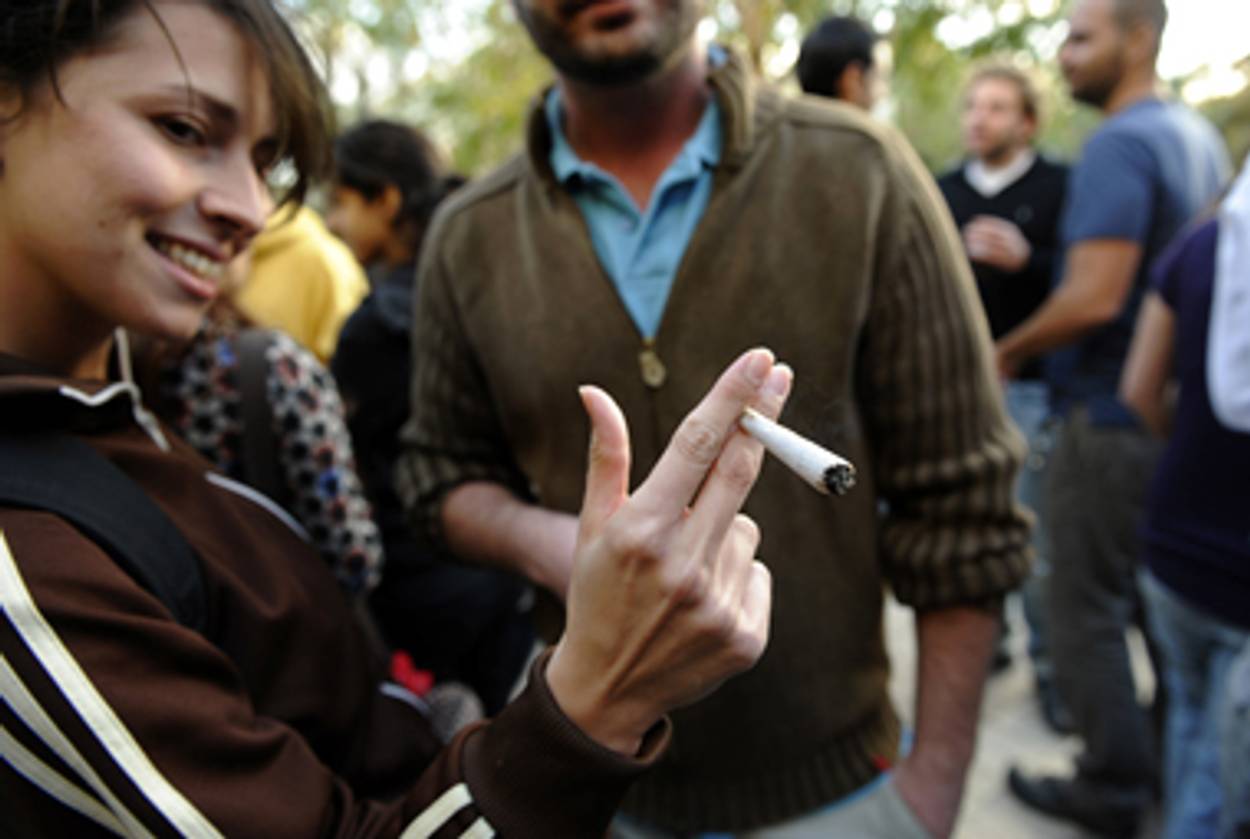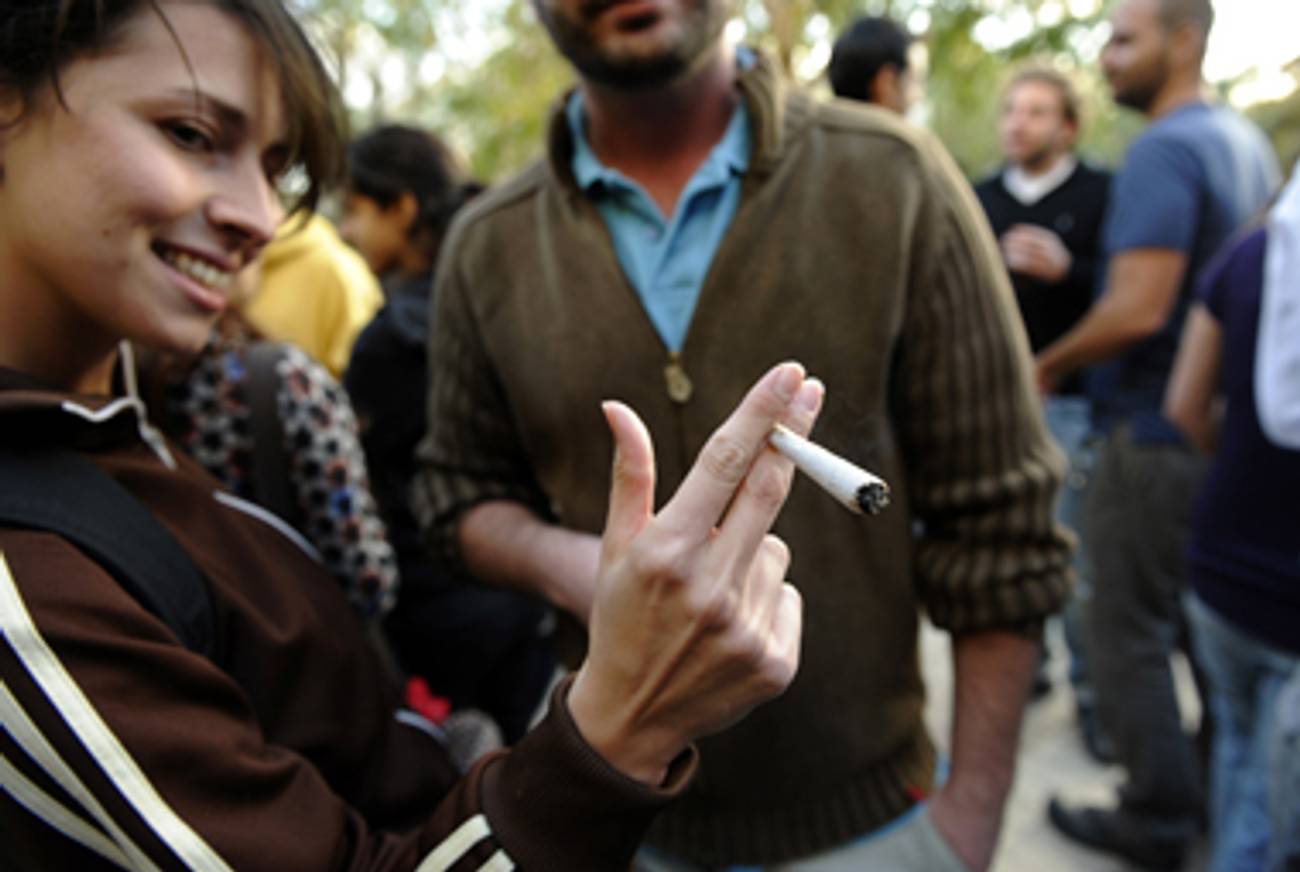Smokescreen
The Israeli right paints Ben-Gurion University as a haven for radical leftists. But the charges, meant to counter similar rhetoric from the left, are unfounded, and potentially damaging.




By now it is well-known that many groups on the political left are attempting to impose a boycott on Israeli institutions of higher education similar to that imposed on South African schools in the 1980s. What is less well-known is that a similar movement is also taking shape on the right, which is targeting Israel’s universities for their alleged anti-Israel and radical-left politics. While the Hebrew University of Jerusalem, Tel Aviv University, the University of Haifa, and other institutions have all come in for this kind of criticism, it is Ben-Gurion University of the Negev, my alma mater, that has become the focus of right-wing ire, especially from within Israel.
Two years ago, the attacks on BGU were already so intense that BGU’s president, Rivka Carmi, sent a letter about them to faculty in August 2009, according to IsraCampus, a right-wing group that monitors leftist activity on Israeli campuses. Carmi wrote:
I received a panicky phone call from the US, in which I was informed that a faculty member at BGU, Dr. Neve Gordon, had just published an article in the Los Angeles Times. This article calls upon the entire world to boycott the state of Israel, which Gordon there terms an apartheid regime. From that point and onwards, I received and continue to receive an unprecedented storm of angry messages and outraged letters from donors and supporters of the University, as well as from others who merely heard about the article. I also was forced to take enraged phone calls from donors and Jewish public figures in Israel and abroad.
Carmi went on to warn the faculty that “without these donations we simply do not have life, and certainly not development and progress. … Many of those contacting me stated that they would never again support any Israeli university employing people who harm Israel in this way, and indeed that they would encourage their friends and associates to likewise withhold donations.”
This is only the most extreme example of what has become a recurring problem for BGU. For example, another right-wing website, Israel Academia Monitor, has scores of articles attacking BGU and members of its faculty. There is no doubt, in short, that the university has developed a serious image problem among right-wing Israelis and their supporters.
The caricature of BGU that has emerged on the right is not a subtle one. According to its critics, BGU is little more than a manufacturing center for treason. Its faculty is dominated by radical leftists who despise Israel. In between manufacturing atrocity stories and slanders for the use of Israel’s enemies, they spend their time damning Zionism in international forums, organizing boycotts of Israeli institutions, including their own, and browbeating any dissenting students into submission by threatening their academic standing. Indeed, at least one American student at BGU has posted a lengthy accusation against a professor, geographer Oren Yiftachel, charging him with mounting a campaign of intimidation against her. Other faculty members who are frequently cited as among the worst offenders in this regard are the political scientist Neve Gordon, geographer David Newman, and historian Amnon Raz-Karkotzkin.
I am a graduate of BGU and someone who is, for the most part, on the center-right of the Israeli political spectrum, and this has caused me more than a few uncomfortable moments. Friends and colleagues have told me that I spent four years of my life studying with the enemy. These moments are made still more uncomfortable by the fact that I am well aware of the presence of radical leftists on the BGU faculty. In fact, I studied with several of them. Nonetheless, the picture of BGU that is now ubiquitous on the right bears little resemblance to the institution I know.
***
I came to BGU in 2002, first as part of a program for overseas students and then as part of the regular student body. The humanities department at BGU is relatively small, and as a student in Jewish history I studied with several of the professors who have been singled out for criticism. Of the four most-criticized members of the BGU faculty, I studied with two of them, Yiftachel and Raz-Karkotzkin, and I knew several students who studied with Newman and Gordon. Quite in contrast to the accusations against BGU—and in contrast to my experience in the United States—I never felt marginalized, penalized, or intimidated as a result of my political views during my studies. Indeed, I always felt that my work was treated fairly despite whatever political disagreements existed between me and my professors.
Yiftachel, an urban studies and political geography professor, often went out of his way to engage me in conversation—sometimes, I felt, out of missionary zeal—but he certainly never attempted to silence or intimidate me, and considering the amount of time I spent arguing with him, he had ample opportunity to do so. I did think that he had a tendency to go deaf whenever I expressed a contrary opinion, but this is hardly an abusive practice. Historian Raz-Karkotzkin, who is, if anything, even more politically active than Yiftachel—he once ran for Knesset on the list of Balad, a left-wing Arab party—treated my work with genuine enthusiasm even though we disagreed about almost everything. And in classes with Yiftachel and Raz-Karkotzkin my grades were never affected by my complete rejection of their politics.
Nor did I ever hear such complaints from my fellow students, many of whom were far more to the right than I. BGU has a large proportion of students from the West Bank settlements, many of whom were politically active, and they would certainly have spoken out had they felt abused. Certainly, I never saw anyone consciously adjust their politics or their expression of their politics in order to fit in, either with their peers or their professors. Even more important, perhaps, is the fact that the BGU faculty is hardly monolithic in its politics. Along with radical leftists like Raz-Karkotzkin or Yiftachel, the humanities faculty contained old-school labor Zionists, secular right-wingers, religious Zionists, and others whose politics were either unknown or too generic to be of great interest to their students.
Nor have I been impressed by some of the right-wing criticisms on which I can comment personally. During the 2005 withdrawal from Gaza, for example, the right went after historian Hanna Yablonka because she had accused those who wore an orange star in protest of the withdrawal of engaging in “Holocaust pornography.” I attended a class in which she used that phrase, and she made it clear that the phrase represented her personal opinion, to which I believe she is entitled and with which I largely agreed. I felt that her rhetoric was perhaps overly intense, but this is to be expected in a culture such as Israel’s, where furious expressions of political belief—such as wearing the orange star, for example—are the norm. Her critics’ attempt to transform her comments into something monstrous struck me as, at best, an absurdity.
This does not mean that right-wing criticism of left-wing academics is problematic. Academic freedom is not a grant of immunity from criticism, and there are plenty of academics in Israel deserving of criticism. But Israeli universities do not seem to suffer from institutionalized politicization, in which entire departments and disciplines are defined by politics and by students’ willingness to adopt those politics as their own. This is, I think, to Israel’s credit, and—ironically—it is precisely this that the right-wing campaign against BGU threatens to undermine.
It also threatens to undermine a valuable institution. BGU gave me an intellectual home at a point when I had been unable to find one elsewhere, and I am grateful for it. I am sure there are many other students and graduates who feel the same. It is the only institution of higher learning that serves the south of Israel and its large, and largely poor, Sephardi and Bedouin populations. It is an economic necessity for the city of Beersheva, one of Israel’s largest and also one of its most neglected. When the BGU student body went on strike in 2005, the depressive effect on the city’s economy was terrible to witness. Shops closed, cafés stood empty, and construction sites shut down, leaving buildings half finished and abandoned. Should the campaign—from the right or the left—against BGU succeed, such conditions would become permanent. The Israeli right has long prided itself—and rightfully so—on being the voice of Israel’s development towns and their marginalized communities; to engage in a campaign that would cause their largest city irreparable harm would be a betrayal of that legacy.
Most important, however, is the fact that, at the moment, Israel as a whole, and certainly its academic institutions, are facing a boycott campaign from the left that has the potential to cause serious damage to the cause of the Jewish state. To compound this threat by undertaking an equally unjustified—and, in many ways, far more immediately damaging—campaign from the right, can only prove both counterproductive and, in the end, needlessly destructive.
Benjamin Kerstein, a Tel Aviv-based writer and editor, graduated from Ben-Gurion University in 2007.
Benjamin Kerstein is an Israeli-American writer and editor. He lives in Tel Aviv.